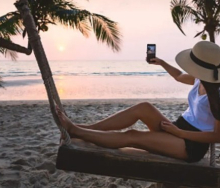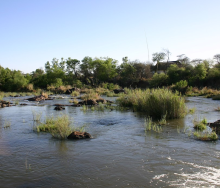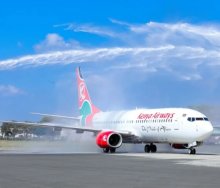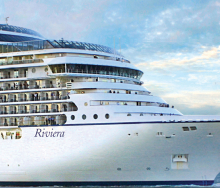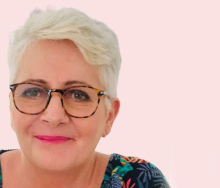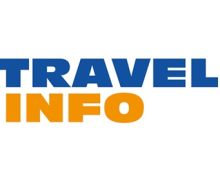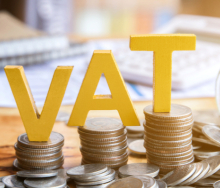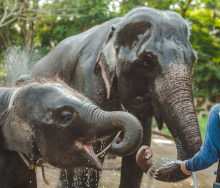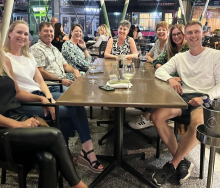Local holidays show significant drop
TOUGH economic conditions in
South Africa saw a decline in
domestic travel in the first three
months of 2018 when compared
with the same period in 2017.
There were 3,8 million domestic
tourist trips undertaken in South
Africa in the first quarter, a decline
of 13,5% compared with the same
period in 2017 when 4,4m trips
were undertaken. This is also
significantly down from the 2016
first quarter, when 7,3m trips
were undertaken, according to
South African Tourism’s Tourism
Performance Highlights JanuaryMarch
2018 report.
Of the first-quarter 2018 trips,
only 700 000 were holiday trips – a
34,7% decline compared with the
first quarter in 2017. Business trips
also decreased from 9% to 6% of
the total domestic trips.
There was also a drop in revenue
from domestic tourism, with total
domestic direct spend declining
from R8,8bn in the 2016 first
quarter, to R5,4bn in the same
period in 2017, and R5bn in 2018.
Bednights bought by domestic
tourists declined too by 17% to
12,4m, compared with 14,9m in the
2017 first quarter and 26m in the
2016 first quarter.
The most-visited provinces by
domestic tourists in this quarter
were Limpopo (21%), Gauteng
(18%), Mpumalanga (16%) and
Eastern Cape (15%).
Dearth of packages for middle-class travellers
THE decline in
domestic travel is a
concern, says Sisa
Ntshona, SA Tourism
ceo.
“If you look at most
tourism economies
around the world they
have a very strong
domestic tourism
base. South Africa is
the other way round.”
He says contributing
factors are the
tough economic
environment, with
consumers having
less disposable
income; the increase
in the fuel price,
which has an impact
on transport costs;
and the fact that
South Africa has one
of the world’s largest
Gini coefficients – a
measure of inequality
– with the base of
unemployed people
growing much faster
than the base of employed people.
Sisa adds that few tourism products
have been deliberately developed for
the domestic tourism market. “Many
tourism products don’t meet the
needs of the growing
black middle class.
There is nothing that
represents them that
is being packaged.”
This is where he sees
an opportunity for new
players to come in and
address the needs of
this market. He says the
private sector prioritises
the euro, pound and
dollar over the rand, so
pricing is often not in line
with what South Africans
can afford.
Blacky Komani,
chairman of the Tourism
Business Council of
South Africa, says: “As
we usher in Tourism
Month this September,
we need to reflect on
how we got here, the
reasons behind the
worrying decline in
domestic trips and what
we can do about it.
While Tourism Month has
its roots in propelling
domestic tourism forward, we are yet
to fully understand its impact. The
travel and tourism industry needs
to go back to basics and provide a
conducive environment to faciliate
domestic travel. As an industry we
need to ensure that potential tourists
are aware of the options available
to them, particularly when it comes
to affordability and accessibility. We
need to offer innovative packages,
excellent service delivery and foster
traveller confidence among locals.
More critically, we need to foster a
culture of holiday travel among the
majority of South Africans.”
Andrew Widegger, ceo of City
Lodge Hotel Group, says business
and leisure travel in South Africa
continue to be affected by low levels
of business and consumer confidence
and the subdued state of the
economy.
“This is unlikely to improve until
there are signs of sustainable
economic growth, underpinned
by higher levels of confidence, an
improvement in employment levels
and policy certainty in the country,
particularly around the mining charter
and the question of expropriation of
land without compensation.”
Accommodation establishments in
Cape Town saw a large percentage
drop in bednights sold in the first
and second quarters of 2018, says
Danny Bryer, area director of Sales,
Marketing and Revenue Management:
Marriott International Regional Office,
Cape Town.
“The water crisis in Cape Town and
Day Zero messaging had a serious
impact. People were cautious about
visiting Cape Town. Corporates
reduced their average length of stay,
the domestic leisure market chose
other destinations for their holidays,
especially in December and over
the Easter long weekends, and the
conference and incentives industry in
the Western Cape took a hard knock.
Added to this, consumers remain
cashstrapped in our low-growth
economy, while the recent rises in the
petrol price have increased the cost
of travel and of doing business.”
Danny adds that the message
now being sent out from tourism
authorities to reignite tourism is one
of ‘water sustainability and not Day
Zero’.
Blacky adds that Tourism Month
should be a time of reflection and
robust conversation about the
state of domestic tourism in South
Africa. “Beyond the launch, tourism
speeches and other planned events
and promotional campaigns, there
must be room to fully unpack where
we are and where we need to move
toward to ensure that domestic
tourism truly becomes the backbone
of the sector. A robust domestic
tourism sector is a sustainable
tourism sector.
Gauteng Tourism encourages good hosts
GAUTENG Tourism launched its GP
Sho’t Left campaign for Tourism
Month at the end of August. The
campaign aims to encourage
Gautengers to be good hosts, and to
learn about and explore their province
and their own neighbourhoods.
Gauteng Tourism spokesperson,
Barba Gaoganediwe, says Gauteng
plays host to the greatest number of
VFR visitors of any province in South
Africa. “Gautengers have a fantastic
opportunity to show their visitors
and relatives around the province
and to also employ the services of
local operators and tour guides who
can offer an insider’s view of the
wonderful experiences available in
their neighbourhoods.”
He says the campaign is also
teaching locals about the socioeconomic
value of tourism, the
importance of taking care of visitors
to the province and treating them
to the exceptional experiences and
attractions on offer.
“It takes just two and a half hours
to drive from one end of the province
to the other. Visitors can, therefore,
see and experience a lot in a short
space of time – from the pleasure
resorts on the Vaal River to Big
Five game viewing in Dinokeng, and
everything in between.”
Gauteng Tourism is also focusing
on the untapped student market in
Gauteng, says Barba, which hosts
more than two million students
annually from all parts of South
Africa and the continent.
“We would like travel agents and
tour operators to partner with us to
offer cost-effective packages to this
market; discounted packages that
students can access through their
student cards.
Eastern Cape is host province for Tourism Month
THE Eastern Cape is the host
province for this year’s Tourism
Month, which takes place in
September. Nopasika Mxunyelwa,
Eastern Cape Parks & Tourism
Agency’s (ECPTA) chief marketing
officer, says ECPTA will introduce
a host of initiatives to stimulate
and drive domestic tourism to the
province this Tourism Month and
beyond. Where possible, they will
be linked to the Nelson Mandela
Centenary and Albertina Sisulu
celebrations.
The initiatives include:
ECPTA and tourism partners are
providing destination knowledge
training for frontline tourism staff
at tourism touch points as well
as customer service agents at
petrol stations. The training, with
its focus on ‘legendary service’ is
aligned with the ‘Nelson Mandela
Centenary 2018 Be the Legacy’
campaign.
On September 4, ECPTA launched
its Legacy InstaFUN campaign
to encourage Eastern Cape
residents to seek out iconic
wildlife, adventure, and culture and
heritage experiences. Locals will be
encouraged to upload three images
of themselves enjoying these
experiences to social media to win
a host of prizes.
The No 67 Wins initiative
encourages more people to use
the ECPTA online facility http://
bookonline.ecpta.co.za, to book
accommodation at Eastern Cape
nature reserves. In commemoration
of the 67 Minutes Mandela Day
campaign, the 67th person to
make an online reservation on the
booking platform during September
will receive 100% discount,
provided it does not exceed four
people on a three-night stay.
To encourage locals to visit
Eastern Cape nature reserves,
ECPTA will also host open days in
selected provincial reserves during
September. From September 1,
day visitors get free entry into the
following reserves on Saturdays
and Sundays to Baviaanskloof,
Ongeluksnek, Dwesa, Silaka,
Mkhambathi, Hluleka, Great Fish
River, Fort Fordyce and Thomas
Baines.
Sho’t Left Travel Week comes with appealing discounts
SOUTH African Tourism
is partnering with the
travel and tourism trade
to launch Sho’t Left
Travel Week from
September 24-30. During
the week, domestic
tourists will be able
to take advantage of
attractive discounts at
South Africa’s national
parks, botanical
gardens, museums,
graded establishments,
attractions and
experiences.
SA Tourism has also
partnered with Flight
Centre to promote the
Flight Centre Stokvel
initiative to people at
local community centres
and shopping centres
nationwide. Flight Centre
Stokvel is a travel saving
solution that enables
individuals or groups to
start a Stokvel Club and
contribute funds to it at
their own pace. They can
then use the funds to pay
for travel at discounted
rates and get expert travel
advice.
The partnership is
also providing a platform
for 20 small travel
businesses specialising
in attractions and
experiences to showcase
their offering at the Travel
Expo at Johannesburg’s
Ticketpro Dome from
February 9-10, 2019.
These partnerships aim
to provide market access
on platforms where sales
conversion can become a
reality for these smaller
companies.
SA Tourism’s Sisa
Ntshona says lack
of affordability and
accessibiliity are two main
reasons why domestic
tourism is on the decline.
“In Sho’t Left Travel
Week we are trying to
address these two issues
by partnering with the
tourism industry to come
up with great deals of up
to 50% off. Consumers
can buy these deals
during Travel Week but can
use them at any time.”
He adds that Travel
Week is also about
teaching domestic
travellers smart travel tips
like travelling at off-peak
times and exploring South
Africa’s different provinces
and experiences. “We
believe everyone can
find something they’re
looking for that suits
their pocket. We all tend
to go on holiday at the
same time to the same
place, which creates a
supply-demand squeeze.
If people want to holiday
in Durban, for example,
they don’t have to stay on
the beachfront and pay
beachfront prices to have
a fantastic holiday. They
can find accommodation
that is more affordable for
them.” He adds that when
it comes to accessibility,
travellers don’t need to
hop on a flight but can
also travel by road and
rail.
TKZN to roll out virtual reality booths
TOURISM KwaZulu Natal
is planning to roll out
innovative ‘virtual reality
booths’ this month to
showcase the destination
better for prospective
travellers. The VR
activation will be held at
uShaka Marine World in
KZN, the Mall of Africa
in Gauteng and the V&A
Waterfront in the Western
Cape during the school
holiday break weekend in
September.
The virtual experience
will take travellers on
a journey to visit key
tourism attractions in
KZN from the comfort
of their couch or from
the offices of their travel
agent. VR experiences
provide a visual medium
to showcase destinations
and experiences that
are far more vivid and
experiential than flat, twodimensional
media.
Phindile Makwakwa,
acting ceo of Tourism
KwaZulu-Natal (TKZN),
says VR is an incredibly
powerful tool for travel
agents because it allows
them to intimately
showcase their
expertise as curators of
experiences.
Says Phindile: “Although
digital revolution is often
viewed as a threat for
travel agents, it should be
seen as a valuable tool
to enhance the traveller’s
experience, allowing
potential consumers
to catch a glimpse of
the atmosphere of the
destination they’re about
to book. The images on
virtual reality are vivid and
have a much bigger effect
on consumer choices than
a standard destination
description or tour
itinerary.”
Greenlight Insights, a
US-based market research
company that specialises
in VR and augmented
reality (AR) industries,
recently released results
from its consumer survey
of 1 300 adults.
A majority of
respondents said they
would be more inclined
to purchase from a brand
that used VR than from
one that didn’t. The survey
also found that consumers
were interested in many
applications of VR and
AR, with travel the most
popular surveyed category
(74%).
Digital transformation is
at the heart of the entire
marketing strategy for
Tourism KwaZulu-Natal
this year. Besides the
virtual reality booth, the
tourism authority recently
launched the KwaZuluNatal
Tourism app, which
includes geolocation
and helps users find
activities, accommodation
and restaurants in the
province.
“We would like to
urge all our travel agent
partners to leverage the
digital platforms we are
putting in place, including
our newly launched
tourism app,” says
Phindile. The app, which is
available free for download
from the App Store and
Google Play, features
up-to-date local travel
and tourism information.
Travel agents will find local
KZN hangouts, heritage
tours, day trips, leisure
activities and exclusive
KZN experiences amongst
others.
The app also features a
QR Scanner, a ‘things to
do’ list, accommodation
options and an updated
list of events from art
exhibitions to agricultural
events, conferences
and cultural festivals,
dance and music events,
exhibitions and expos,
fairs, festivals, flower
shows, sporting events,
theatre and national
gatherings.
Did you know!
Knysna Tourism has closed its offices with immediate effect. Wesgro will take over the mandate
for tourism and promotion and destination marketing of the region, including Sedgefield, from
November 1. This follows a series of engagements between the Knysna Municipality and the
Department of Economic Development and Tourism over ongoing funding issues. After taking over
the office later this year, Wesgro will restaff the offices and relocate a senior employee to Knysna to
lead the new team.
